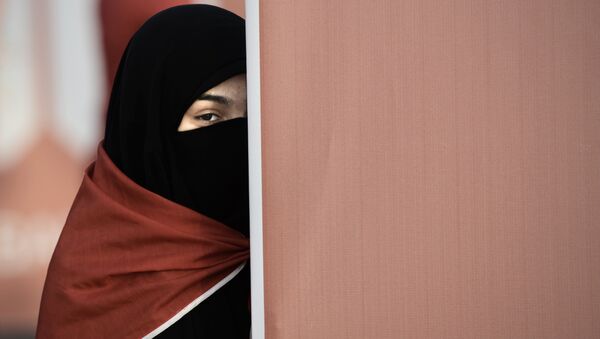Human rights campaigners have expressed their concern at the lack of progress in Bahrain following the 2011 demonstrations, which resulted in more than 90 civilian deaths and thousands of arrests, with activists accusing the government of trying to silence any form of opposition.
#Bahrain: Hopes for justice and reform fading five years since 2011 uprising: https://t.co/gfhICQ0hsF pic.twitter.com/wQ6VM2skWx
— Amnesty UK (@AmnestyUK) February 11, 2016
"Five years since the uprising, torture, arbitrary detention and a widespread crackdown against peaceful activists and government critics have continued," James Lynch, Amnesty International UK's Middle East and North Africa deputy director said.
"Today in Bahrain, anyone who dares to criticize the authorities — whether a human rights defender or political activist — risks punishment."
Concerns Over Lack of Justice
The concerns come despite assurances from authorities that the country would investigate the alleged crimes of 2011, while also committing to increase governmental transparency.
The Bahrain Independent Commission of Inquiry (BICI) was set up later in 2011, which found the Bahraini government had engaged in the systematic use of torture and other forms of physical abuse on many of those arrested and questioned by law enforcement authorities.
The #BICI is committed to its mandate and the people of #Bahrain
— BICI (@BICI_Bahrain) September 24, 2011
However, Mr Lynch says many of the measures implemented have failed to bring about justice.
"Despite pledges from the authorities to prosecute security forces responsible for human rights violations in 2011, the Bahraini people are still waiting for justice. Institutions set up to protect human rights have not only failed to independently investigate or hold perpetrators to account, but now increasingly appear to be used to whitewash continuing abuses."
2011 Uprising
Following on from similar uprisings in neighboring Tunisia, the mass protests against Bahrain's ruling Al-Khalifa family started on 14 February 2011, with thousands of protesters calling for widespread reforms to the country's constitution, along with an end to civil rights abuses.
Sunday Feb 14 marks 5 years since #BahrainUprising — @dooley_dooley explains 5 years of failed U.S. policyhttps://t.co/EZmsgLVsKO
— Human Rights First (@humanrights1st) February 12, 2016
Thousands of mainly Shia protesters — who make up the majority of the country's population — gathered in Bahrain's capital of Manama to demand changes from the Sunni-controlled government, but were met with violent force from Bahrain's security forces.
Estimates suggest more than 100,000 people took part in the month-long wave of protests, with the BICI investigation accusing the government of being responsible for the deaths of 20 civilians during this time, while a further 3,000 were injured.
#Bahrain after the "Arab Spring":5yrs on,the people of Bahrain are still waiting for justice https://t.co/wS5MWZ34fH pic.twitter.com/L4uMuUWmcv
— Amnesty Bahrain (@aibahrain) February 12, 2016
Unlike in other countries during the Arab Spring, the protests didn't succeed in achieving widespread reforms after 1,5000 troops from Saudi Arabia and the UAE entered to shut down demonstrators.


